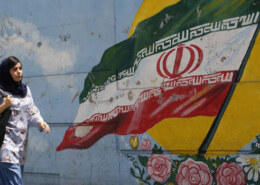Migrating to Iran requires careful consideration and understanding of various aspects of the country. Here’s an overview of important information to know before making the move:
Visa Requirements: Check the visa requirements for your country of origin. Iran has specific visa regulations, and most travelers need to obtain a visa in advance. Visit the website of the Iranian embassy or consulate in your country to gather accurate information and begin the application process.
Culture and Religion: Iran has a rich cultural heritage deeply rooted in Persian traditions and Shia Islam. It is important to familiarize yourself with the local customs, traditions, and Islamic practices. Respecting religious beliefs and cultural sensitivities is crucial while living in Iran.
Language: Persian (Farsi) is the official language of Iran. While English is taught in schools and spoken in certain urban areas, it may not be widely spoken or understood in more rural parts of the country. Learning basic Persian phrases can greatly facilitate your interactions and integration.
Cost of Living: The cost of living in Iran is relatively affordable compared to many Western countries. However, major cities like Tehran can be more expensive. It is important to consider housing, transportation, healthcare, and daily expenses when planning your budget.
Currency: The official currency of Iran is the Iranian Rial (IRR). It is advisable to familiarize yourself with the currency exchange rates and banking system. Note that international credit and debit cards may not be widely accepted, so it is advisable to have access to local currency.
Healthcare: Iran has a mix of public and private healthcare facilities. Major cities offer modern medical services, but the quality and availability may vary in rural areas. It is recommended to have comprehensive health insurance that covers medical expenses during your stay.
Job Opportunities: Research the job market and employment opportunities in your field. Major sectors in Iran include oil and gas, automotive, construction, agriculture, and tourism. Fluency in Persian and specialized skills can enhance your employment prospects.
Education: Iran has a well-established education system. If you have children, consider the availability and quality of schools in your desired location. International schools that offer education in English or other languages are also available in major cities.
Safety and Security: Iran is generally a safe country, but it is important to stay updated with the latest travel advisories and follow local laws and regulations. Respect local customs, avoid political activities, and be cautious of your surroundings at all times.
Dress Code: Iran has a dress code that requires both men and women to dress modestly in public. Women should wear loose-fitting clothing that covers their arms, legs, and hair, while men should avoid wearing shorts and sleeveless shirts.
It is important to conduct thorough research, consult with official sources such as government websites or embassies, and connect with expatriate communities in Iran for accurate and up-to-date information. Understanding the country’s culture, legal requirements, and practical considerations will help you make a smooth transition and have a fulfilling experience while living in Iran.

